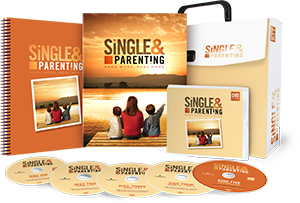
Jonathan was sick to his stomach. No pastor ever wants a child hurt. Yet, his church was facing a lawsuit over sexual abuse in their children’s ministry. He was bogged down with conversations with a lawyer, shepherding the distraught families in his congregation, feeling guilt over his failed leadership, and trying to hold things together. Jonathan said, “It felt like a bomb just went off, and I’m cleaning up the mess.”
“Jimmy” was a friendly man who had joined First Baptist Church about a year before. He was very kind, and the members of First Baptist took a quick liking to him. Jimmy volunteered to teach a Sunday school class and got to know “Peter,” an eight-year-old boy, in his class. Things started innocently. A hug at the end of class. Gifts for Peter. Lots of extra attention.
And then it happened. Jimmy took advantage of Peter. He made Peter keep it a secret. Peter cried a lot over the next few days (which was not like him), and eventually his mother got it out of him. She contacted the pastor immediately, but the church made excuses. She was so outraged, she sued the church.
When churches fail our kids
Sadly this is an all too familiar story. If you pay any attention to the news, you are well aware that sexual offenders show up in churches, predators hunting defenseless prey, who do unspeakably horrible things to our children. Much of what is done could be prevented, but many churches are ignorant about how to protect their children and about how to respond when child sexual abuse happens at church. It all adds up to being irresponsible with the littlest ones that God has entrusted to our care.
Why do churches fail our kids?
- Because churches are so desperate for volunteers, sexual offenders know they can get easy access to kids.
- Because churches are so informal, they don’t bother checking on someone’s past or screening volunteers.
- Because Christians make too many assumptions about sexual abuse. They think things like “It will never happen to us” or “We know everyone at church, and none of our friends would do something like this.”
- Because Christians make too many assumptions about sexual offenders. They assume they are not anything like us, when in fact sexual offenders come in all types—white collar or blue collar, single or married, male or female, educated or uneducated, rich or poor.
- Because church members get offended when the children’s ministry director starts implementing protective measures in children’s ministry. Long-standing members think, “Why do I need to do a background check? I’ve been here for twenty years.” Others think, “We’re a small church. We’re like a family. Why do we need this?”
- Because sexual offenders are smart. They know Christians are naive, so they take advantage of their trust. A sexual offender cultivates a double life, appearing like the nicest guy in the world. He does this in order to get easy access to children.
- Because when child sexual abuse happens at church, there are often no policies in place for how to handle it. When pastors try to handle this internally without a response plan and without involving authorities, children are victimized yet again—but this time by church authorities.
Many more reasons can be listed, but these give you a sampling of what could go wrong.
Protecting our church kids
What can be done about this problem? How can pastors and churches be more responsible in protecting our children? Let me suggest twelve best practices. None of these practices by themselves can completely eliminate the possibility of a sexual offender hurting your church kids. But together (if followed) they can reduce the risk and increase the likelihood that our kids will be safe. And who doesn’t want that, right?
Best practice #1: Creating and implementing a child protection policy
A Child Protection Policy (CPP) is a set of self-imposed guidelines that describe how a church intends to protect the children under its care. A church with no policy is a recipe for disaster because it creates a culture of false assumptions that sexual offenders prey on, such as, “We are a small church, so we know everyone.”
CPPs trace out prevention measures, what the church can do to decrease the likelihood of abuse. But they also offer a response plan if abuse occurs within the church. If a child were abused in your children’s ministry, do you know how you would treat the offender? Do you know how to care for the family of the victim? Do you understand the regulations for reporting abuse? When do you tell the other parents in the church? Do you know what to say to media requests? A well-written Child Protection Policy gives you a set of procedures that guide the church’s response to abuse. A church with a CPP shows that the leadership and staff have proactively thought about these things in advance. If there are no plans in place, it means the pastor is going to figure out what to do when something comes up. Which church would you prefer to bring your kids to—the well-planned children’s ministry, or the fly-by-the-seat-of-your-pants approach?
Best practice #2: A check-in and check-out process
Clearly defined check-in and check-out procedures create a “fence” around the children, allowing them to reside safely in the care of the church until they are returned to their parents.
Best practice #3: Membership
A big front door to your church is obvious to sexual offenders. Membership is a conscious commitment to the congregation that allows the church to define who is “in” and who is “out.” No membership process (or a very minimal process) means people too easily flow in and out of the congregation without any clear definition of who is the church. Think for a moment. Where do you think a sexual offender is going to go—a church with a ten-week membership class plus an interview, or a church where you can join right away without any questions? The lower the membership hurdle, the more likely they will jump over it.1
Best practice #4: Training
Training volunteers to do their jobs well is an important part of equipping the church to be responsible stewards of children. Two types of training are important—entry-level training (for the new volunteers) and ongoing training (for the veterans). How do you answer the question “What do our staff and volunteers need to know to do their job faithfully, in a way that keeps children safe?”
Best practice #5: Screening and verification
Most sexual offenders assume you won’t check up on them, because most churches don’t do any form of background check. One of the most important steps in protecting against predators is implementing screening and verification procedures that will detect when sexual offenders are in your church. Do not assume that just because a volunteer is a self-professing Christian that he or she is okay to be with your kids. Asking about their backgrounds and employing professional screening services help verify that there are no skeletons in the closet.
Best practice #6: Building design
Have you ever thought about how you can adjust your building design to guard against sexual offenders infiltrating your church? Building layout, and the structural setup of your children’s ministry wing, may not be the most obvious strategy in dealing with sexual offenders. It’s probably the thing you are least able to change in your church. Yet, there may be simple adjustments (or larger ones) that you can make to help the children in your church be more secure.
Best practice #7: Reporting abuse to CPS and police
If a child is abused, too often churches decide to keep the matter in-house and refuse to contact outside authorities. “This is our problem and we can handle it,” some leaders think. Add to this the fear of ruining the church’s reputation, skepticism about the abuse, concern over making false accusations, heated emotions, and anxiety over possible lawsuits, and there is pressure against reporting the abuse. If a child or teenager has shared with you allegations of abuse, don’t let your doubts, fears, or concerns slow you down. A helpful phrase to remember is Resolve doubts in favor of reporting. Even if church members or the leadership of the church disagree with the need to report, a responsible Christian who has reasonable suspicion about abuse will report to police and Child Protective Services (CPS).
Best practice #8: Supportive church leadership
One very wise woman in our church says, “Preach good sermons and they will come. Run an excellent children’s ministry and they will stay.” Protection of kids starts at the top—if the church leadership takes this seriously, then the church will see the difference. If the children’s ministry is desperate for volunteers, or if the children’s ministry director is faced with overwhelming resistance to these practices, often it is because the leadership is not supportive, or they just don’t care.
Best practice #9: Caring for victims
Leaders who take abuse seriously will also be deliberate in their care for victims. Comfort, love, and support are vital for the victim. Great evil has been done, and the pastor’s care and prayers help the victim to see that God hates abuse. Enlisting a competent counselor is a crucial part of the long-term plan.
Best practice #10: Getting to know your community
Get to know the resources in your community before the problem occurs. Find thoughtful, skilled doctors and counselors. Take a local CPS worker out to lunch so that when the time comes, you can make a phone call to someone you know rather than an anonymous call to a hotline. Make sure you know the best resources and personnel in your community so you can contact them if it is ever needed.
Best practice #11: Equipping parents
For several weeks after the Jerry Sandusky trial, I was regularly answering parents who asked, “How do we speak about sexual abuse to our kids?” Train your parents to take seriously their responsibility to be the primary disciplers of their children. Teach them to be invested in the lives of their kids, so predators can’t hold secrets with their kids. Encourage parents to not avoid conversations about sex, but to talk openly with their kids about sex so that kids can ask honest questions. Remind parents about the importance of instructing children on decorum, modesty, and respectful boundaries with other kids. Encourage them to talk with their children about what to do if a Sunday school teacher or neighbor or relative tries to cross a forbidden line.
Best practice #12: Carefully monitoring sexual offenders
As I’ve read through Child Protection Policies from churches throughout the country, the most common thing missing is a plan for how to deal with sexual offenders. If a sexual offender walked into your church right before your Sunday morning service, would your staff and volunteers know what to do? Come up with a strategy for how to deal with sexual offenders. Common practices include putting a chaperone with the offender at all times, notifying the congregation, and restricting the offender’s access to the children’s ministry areas.
The end of the matter: Don’t live in fear
We fight to protect our kids because we love them and want to preserve the gospel witness of our churches. As Christians, we don’t want to live in fear, so we trust that the God of grace will equip us to walk in His wisdom and strength.
Sign up for your FREE newsletter!
Footnotes:
- We obviously don’t want to create a cumbersome membership process, but we want to do a class that is long enough to set proper expectations for members before they join and also allows church leadership to verify that the person joining is born-again.



